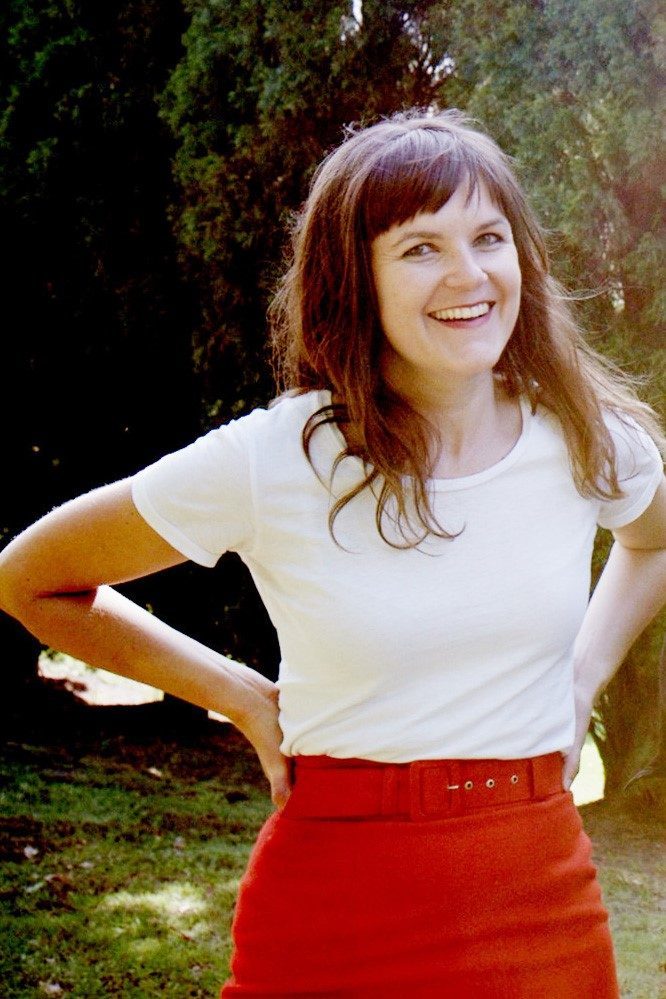How did you get started on your debut novel Half Wild?

Yes, getting started is an interesting question. Usually people ask where the idea came from, but it’s one thing to have an idea, another thing to actually know how to start working on it. I started writing Half Wild ten years ago now, and that was after already trying to work on it as a theatre piece, so it’s actually testing my memory to try and remember putting the first words to page, but I think I’m correct in remembering that I started with the very first conversation that appears in the novel – the conversation between the nurse and the police officer that’s being held over the comatose body of Jean Ford.
I didn’t intend for this to be the first moment in the novel—in earlier drafts it always came later—but it was the first clear image I had, so it made sense to start writing from there. Because the conversation and the following scene deals with the central theme (gender fluidity, who is this person and are they just one person) it makes sense that the book should open with it too. Funny how after taking five years to write and re-write and re-write something, how often you loop back to those first words on the page. That’s often where the heat is, the nub which made you want to write the book in the first place. I find the same thing as been true of the book I’m writing now.
During the writing did you encounter surprises/setbacks? And how did you work around/overcome them?
Oh my lord, so many! Every day! The amount of times I thought – I should just chuck this in and study medicine, it isn’t too late! I wrote whole sections that didn’t make it into the final book, a section that I thought wouldn’t make it in the final book until my publisher encouraged me otherwise. I wrote thousands of words that didn’t have drive, and thousands of words that had drive but just weren’t relevant to the whole. Sometimes trying to attack the book from a different section helped me pull through. Sometimes reading other books that I could take inspiration from pulled me through. Sometimes going for a long walk.
Mostly writing did the trick, but not just dogged mindless writing – I’d try and identify what was missing in the writing that wasn’t working – energy, relevance, etc – and read and write around what I thought the solution might be. I also took three months off to write a collection of poetry – and even though it seemed like procrastination at the time, it was the best thing for me. It was like taking my writing, my brain, my imagination to a boot camp, and gave me a well needed injection of confidence. After pulling that off I thought I can do this.
The novel I’ve been working on since 2018 has been fraught with very different setbacks. Since starting it I’ve had three children (two of them at the same time) and have tried to juggle work around the obligations of family. I can’t be as bullish about getting the book done, and don’t have the same luxury of time. I can’t afford to write thousands of words that go nowhere, but at the same time I’ve set myself very different goals with this book. With this project I really wanted to concentrate on plot, on writing a classic three act drama, just to see if I could do it. Whereas with Half Wild I was more interested in exploring different styles of writing; different voices. So now I’m spending a lot of time moving bits around, trying to experiment with cause and effect. Time away, reading other books that are achieving what I’d like to achieve has really helped. And sometimes taking time out to focus on family has helped too. When I come back to the project it’s easier to identify the bullshit!
What is the main thing you hope students will have accomplished at the end of Kickstart Your Novel?
I don’t expect students to have finished a novel or a perfect first chapter, but what I sincerely hope students will walk away with is enthusiasm for their project, a sense of knowing where the heat is, and what they need to do to push on. I hope they’ll know what tone and style is right for their book, I hope they’ll have some writing that they’re excited by, and proud of, that articulates what they want to say with this project. I hope to give them a sense of the dimensions of their book that they’ll need to address as they continue to work on their project. I hope they’ll have a clear sense of where their work sits, in relation to other published novels, and how to get it up to publishable standard.
Kickstart Your Novel: The First Chapter and Beyond
with Pip Smith
3 May – 21 June 2022
Tuesdays, 7.00 – 9.00 pm
Full details and bookings.